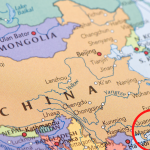British Virgin Islands Economic Substance Legislation
A number of investors worldwide, including Hong Kong and Mainland China, maintain entities on the British Virgin Islands (“BVI”) for various purposes, such as acting as a vehicle to hold share investments and/or intellectual properties, or to engage in trading, service and/or fund management business.
Please note that the BVI introduced the Economic Substance (Companies and Limited Partnerships) Act, 2018 (“ES Act”), under which the prescribed entities on the BVI including:
- Companies incorporated on the BVI.
- Foreign incorporated companies/limited partnership registered on the BVI.
- Limited partnership with legal personality) that are tax resident on the BVI (“Relevant Entities”) and which are engaged in one or more of the relevant business activities (“Relevant Activities”).
These are required to maintain economic substance on the BVI, unless certain exemption conditions can be satisfied.
The ES Act was enacted with a view to enhance the tax transparency and combat tax avoidance/evasion due to the concerns from the European Union and the Organisation for Economic Cooperation and Development (OECD). It has become effective as from 1 January 2019.
British Virgin Islands Relevant Activities
Relevant Activities carried out by the Relevant Entities subject to the ES Act cover a rather wide range of business activities, including the following:
- Holding business
- Intellectual property business
- Headquarters business
- Fund management business
- Finance and leasing business
- Distribution and service centre business
- Shipping business
- Banking and insurance business
BVI Substance requirements under the ES Act
In order to comply with the ES Act, the Relevant Entities carrying out the Relevant Activities (except pure equity holding business) are required to maintain economic substance on the BVI, such as a place of business/physical office/premise, adequate number of qualified employees, physical assets, adequate expenditure incurred in the British Virgin Islands, depending on the nature and scale of the Relevant Activities carried out. In addition, the Relevant Activities are required to be directed and managed from out of the BVI and the core income-generating activities are carried out from out of the BVI.
As regards to the pure equity holding company which can meet certain conditions, the substance requirements are less stringent as it only has two requirement:
- Comply with the statutory obligations under the British Virgin Islands Business Companies Act 2004 or the Limited Partnership Act 2017
- Having adequate employees and premises for holding equitable interests or shares, and where it manages those equitable interests or shares, have adequate employees and premises for carrying out that management.
The Relevant Entities incorporated prior to 1 January 2019 are required to comply with the economic substance requirements by 30 June 2019. Failure to comply with these requirements will be subject to penalty, strike off or both.
Exemption from the substance requirements
In order to be exempted from the substance requirements under the ES Act, one may consider the following for the Relevant Entities, if feasible:
- Not engaged in the Relevant Activities;
- To be a tax resident in a foreign tax jurisdiction (which is not a black-listed jurisdiction), such as Hong Kong (see Note below);
- To close down the Relevant Entities.
It is important to note that one has to be aware of the tax implications/consequences in the relevant foreign tax jurisdiction in case the Relevant Entities are tax resident in that foreign tax jurisdiction.
BVI Reporting obligations
The Relevant Entities are obliged to provide information annually to their registered agents on the BVI for reporting to the BVI government authorities. The information/documents required includes but not limited to:
- Whether the BVI entity is a tax resident outside of the British Virgin Islands territory and if yes, of which tax jurisdiction it is tax resident together with the relevant documentary evidence (e.g. a Certificate of Resident Status issued by the tax authority in the relevant tax jurisdiction) as support
- Which Relevant Activity(s) is carried out by the BVI entity
- The details of the economic substance maintained by the BVI entity on the British Virgin Islands.
The first reporting period for the Relevant Entities incorporated prior to 1 January 2019 is from 30 June 2019 to 29 June 2020. The reporting deadline is 29 December 2020.
Conclusion
It may not be beneficial for using a British Virgin Islands entity to hold investments/properties or run business unless the business of the BVI entity does not fall within the Relevant Activities and/or sufficient economic substance as required under the ES Act has been maintained by the BVI entity on the BVI.
One may consider to transfer the BVI entity’s business to a foreign jurisdiction, such as into a Hong Kong limited company, and then close down the BVI entity. In case one would like to maintain the BVI entity, an option is to have the British Virgin Islands entity to be tax resident in a foreign tax jurisdiction. Having said that, it is suggested to understand the resulting tax impacts in the relevant foreign tax jurisdiction(s) in advance.









